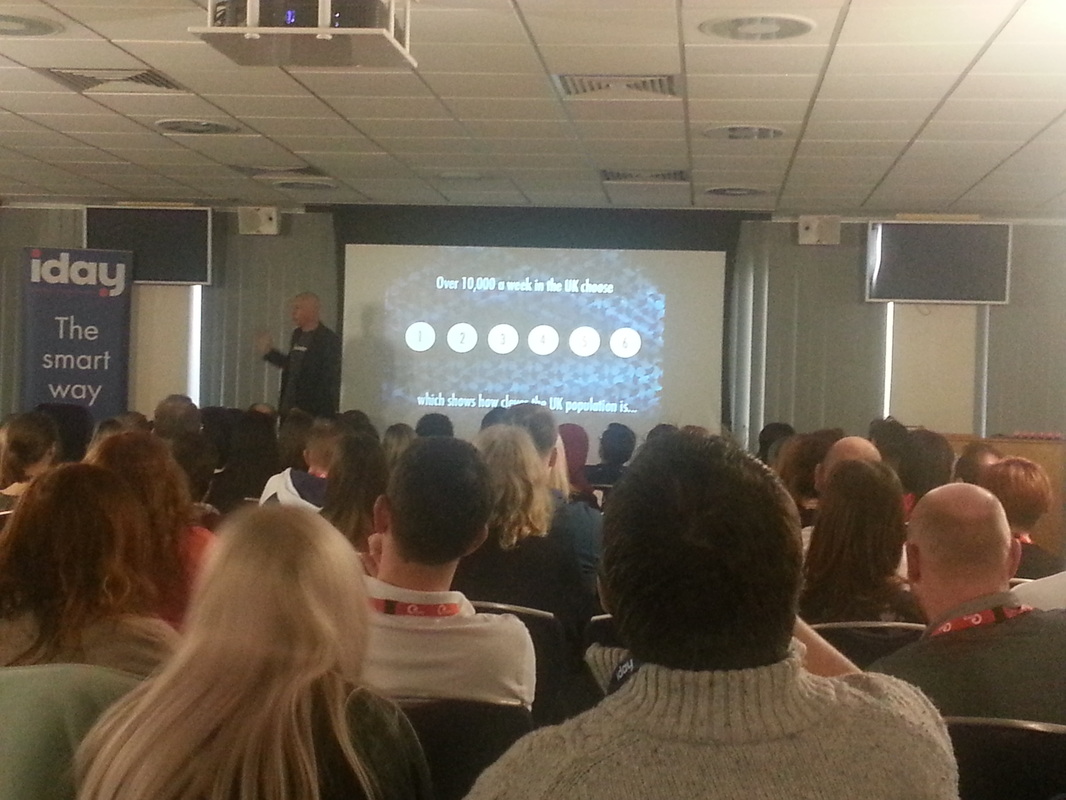I'm a big fan of School of Hard Sums, and I love some of the TV shows that Marcus has done, so I knew this would be good. What surprised me was just how exciting it was being in a room full of enthusiastic mathematicians listening to a lecture from an enthusiastic mathematician; it's this joy that I wish we could bottle and give to students somehow. The hour flew by, and I left with a spring in my step and a reminder of why I love maths so much.
Another interesting point from this is the use of the Fibonacci (why can I NEVER spell that) in music, or more accurately, the fact that the so-called "Fibonacci" sequence was being used for beat counts in Indian music way before Leonardo gave his name to it. @Kirstymaths tweeted a pic of this that's worth checking out.
Marcus then talked about prime numbers, and suggested a more intuitive reason that 1 isn't a prime number. If we think of the primes as building blocks for all the other integers (Fundemental Theorem of Arithmetic), then 1 isn't prime because we can't make anything with it. It's interesting that mathematicians have flipped back and forth on 1 for years; I vaguely remember something from my Numbers and Algebra course in the third year of my degree, but Wikipedia is much more accessible than the lecture notes gathering dust in my loft.
The lecture then progressed to talking about cicadas, insects whose life-cycle lasts a prime number of years. I remember finding out about this last year when a friend in America sent me a video very similar to this one of cicadas in his local area; I was amazed at the volume the insects create, and even more amazed when I read some of the linked news articles that explained that these particular cicadas emerge once every 17 years. There are some theories that this is to do with the cycles of now-extinct predators; choosing a prime numbered life cycle would mean that the cicada has less chance of meeting a surge of predators whose life cycle works on multiples of 2 or 4 (for example). I've also just found a nice video from the BBC's Life in the Undergrowth narrated by David Attenborough - I'm feeling inspiration for a lesson on primes and LCM here!
We then did a lottery activity, and Marcus predicted (pretty accurately) how many of us would have 1, 2 3 or 4 numbers correct. He talked about the ideas that people don't select consecutive numbers because they think these are less likely, but pointed out that half of all possible choices contain consecutive numbers. He also talked about the 1, 2, 3, 4, 5, 6 selection - I love using this when I do combinations with Year 12, and having a discussion about how you think you're clever because (if you're a mathematician) you know that this is equally as likely as any other possible combination, but how you'd be kicking yourself if you won, as there are (apparently) about ten thousand people in the country who pick this per week, and you'd be splitting the prize more than if you went for 22, 23, 24, 25, 26, 27.
Marcus finished with a lovely demonstration of patterns in populations, looking at one model for lemmings to explain the four-year "suicide". Thanks to QI (about 20 minutes in, profanity warning), I was already pretty clued up on the lemming myth (another proud schoolkid moment!), but Marcus demonstrated (using quite a simple mathematical model) how a population could stabilise, then changed this model to show how the lemming population could vary wildly to explain the four-year dip. Again, tempted to try this in the classroom!
I'm sure there's lots of stuff I've missed, but this was a brilliant way to end the day. Like I said at the start, there's something infectious about being in a room full of people who love maths and are enjoying themselves doing or thinking about mathematics, and it's a shame that this doesn't translate to our students sometimes.
| On a side note, this day really really made me want to re-read Alex's Adventures in Numberland - a book so good that one Christmas I was bought two copies - but I've lost them in my house somewhere. There's light at the end of the tunnel though... in Googling to find a link for that, I've just discovered that there's a sequel! Now where's my credit card...? | |

 RSS Feed
RSS Feed

Other scandals were presented on the web with new companies that promised up to 3% daily profit on virtual money that after people apparently need to wash...